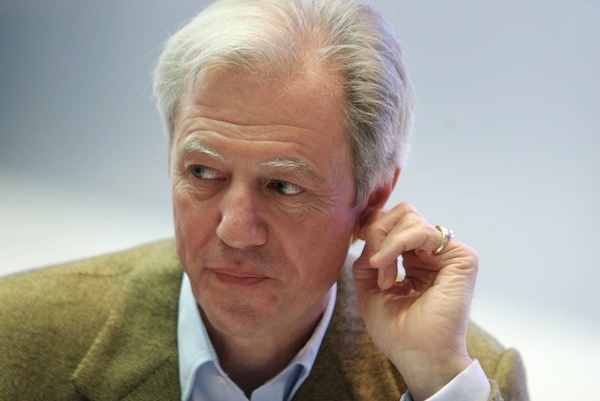Marcus Agius’ resignation this morning as chair of Barclays took few by surprise after being widely trailed over the weekend. But as ever, The Spectator was far ahead of the curve, with columnist Martin Vander Weyer calling on 5 May for Agius to go, nearly two months before the Libor scandal even broke. You can read his argument below.
A word of sympathy for Alison Carnwath, the chairman of Barclays’ remuneration committee, whose re-election to the bank’s board failed to win support from a quarter of its shareholders at last week’s turbulent AGM. Investors were right to be enraged that the bank had ladled out three times as much in bonuses for 2011 as it paid in dividends — almost a third of them declined to support the pay proposals, a signal of how sentiment is shifting in the investment world. But they were unjustified in targeting Mrs Carnwath, who became a Barclays director less than two years ago and seems to have taken a hospital pass from her committee predecessor, the former Customs & Excise chairman Sir Richard Broadbent.
The arcane formulae that produce such inflated rewards for chief executive Bob Diamond and his posse year after year, despite miserable share performance, were stitched into Barclays’ fabric long before Broadbent handed over the chalice. And Carnwath at least had the decency to tell the AGM that ‘the balance of rewards between shareholders and employees has to change in favour of shareholders’ in future.
Also chairman of the property group Land Securities and former chairman of the derivatives broker MF Global (which went bust, after her time, under former US senator Jon Corzine), Carnwath is a seriously thoughtful operator with a reputation for cutting swiftly to the chase. She also, I suspect, doesn’t bother cultivating journalists, some of whom — Nils Pratley of the Guardian to the fore — have called for her resignation from Barclays. But I hope she stays and is allowed to put her words into action, because bank boards need tough cookies like her who are not afraid of change.
If anyone should consider his position, however, it is the bank’s chairman, Marcus Agius — a nice man and an admired corporate financier in earlier days, but one who has made little public impact during his five-year tenure at Barclays, made a hash of this AGM and, unlike Stephen Green at HSBC or Sir Philip Hampton latterly at RBS, has failed to articulate the moral issues with which the banking sector is so beset. Carnwath might even turn out to be the right person to succeed Agius.
UPDATE: And it seems that there is no end to the Spectator’s influence. The Evening Standard’s Londoner’s Diary carries this story:
It seemed like a historic moment yesterday when Marcus Agius, chairman of Barclays PLC, seemed to apologise for last year’s banking crisis.
“Let me say how sorry I am for what happened,” he told the Spectator’s Paths Back to Prosperity Conference at Church House. Never having heard a banker apologise for his greed, I pursued him afterwards for further enlightenment. Of course they’re sorry about what they’ve done to themselves but are they sorry about what they’ve done to us? Was this an apology or a statement of fact?
“A lot of bankers have apologised,” he told me. “It’s right that we should. We’re all sorry about what has happened.”
Still not convinced, I consulted another speaker, Sir Martin Jacomb, former chairman of BZW and director of the Bank of England.
“I’ve never heard a banker apologise,” he said. “Tony Blair and Gordon Brown apologise, but bankers don’t. I am reminded of Hartley Shawcross who once said ‘If I have done anything wrong, I apologise.'”






Comments